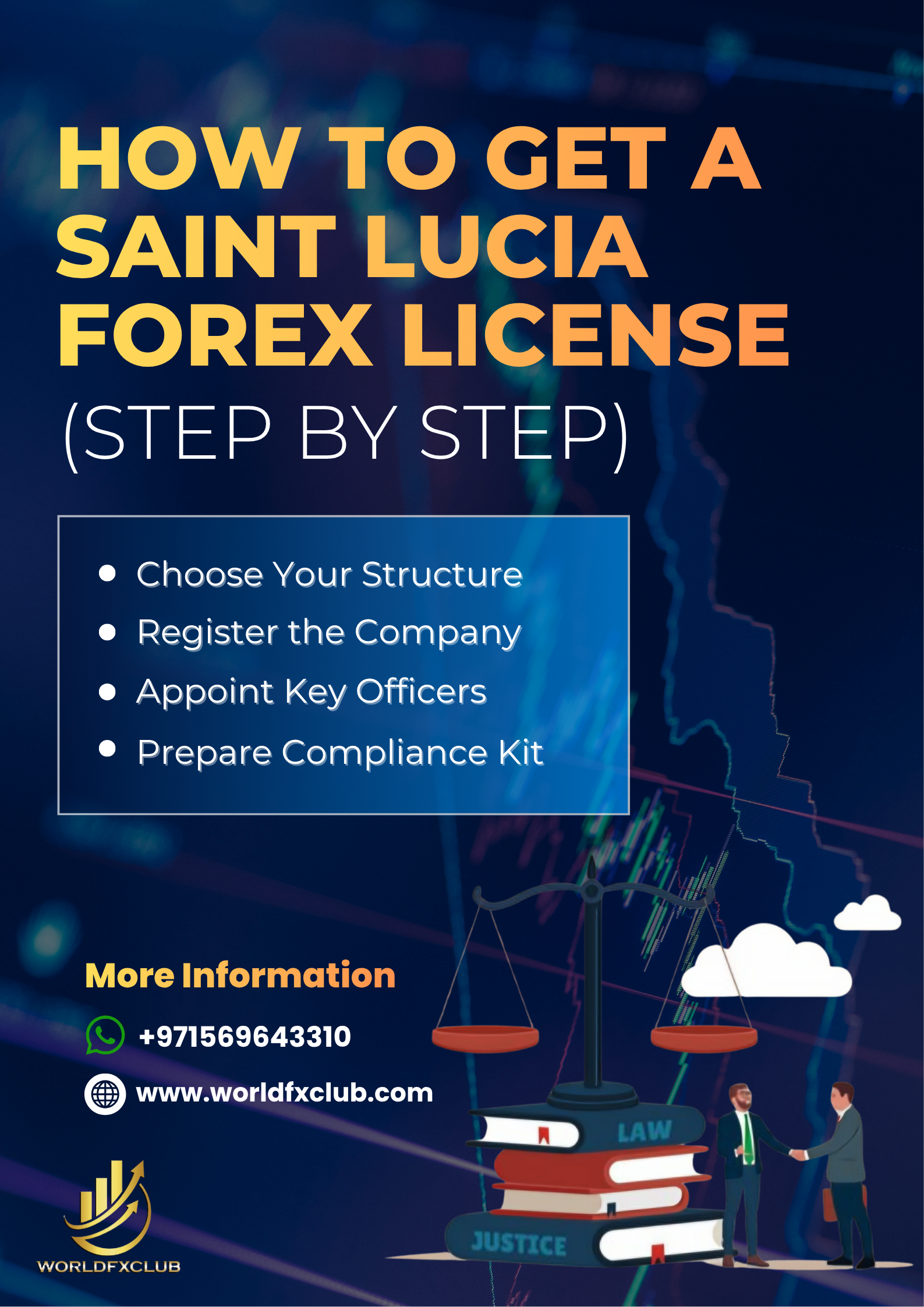Imagine launching a global forex brokerage in just a few weeks, from a jurisdiction that blends ease with strategic tax advantages welcome to the world of setting up in Saint Lucia with full legal support at your side.
1. Understand the Landscape
Before you dive in, it’s vital to know that while Saint Lucia offers a very agile corporate setup, it may not always provide the same regulatory shield as more traditional jurisdictions. Some advisers point out that registering a company there is not necessarily the same as holding a robust license.
What this means for you: clarity on what you’re really getting from status, to legitimacy, to market access and how your legal support will help you navigate that.
2. Incorporate Your Vehicle
Start with forming a legal entity. Options such as an International Business Company (IBC) or LLC are common in Saint Lucia.
Typical steps:
- Choose a unique company name and have it approved.
- Prepare articles/memorandum of association, list of directors/shareholders.
- Submit identity and address proofs for each director/shareholder.
- Pay registration fees and wait for a certificate of incorporation.
Your legal team should guide you through each document, not just by filling forms but ensuring they match your business model and risk profile.
3. Structure Proper Compliance & Documentation
Having the company is only part of the story. For credibility and operational readiness you’ll need:
- A business plan covering your forex service offering, target clients, revenue projections.
- Internal compliance framework: AML/KYC policies, risk management, trade control procedures.
- Suitable personnel: at least two directors (in many cases) and a local registered address or service provider.
Legal support here means making sure your documents are tailored not just to local rules but also to how banks, payment processors and platform providers see you.
4. Evaluate Licensing vs Company Formation
A key pitfall: many companies treat Saint Lucia registration as though it equals a fully regulated forex license but many experts say that may not be accurate.
You’ll want to check:
- Whether the entity can legally offer client-facing forex brokerage services (rather than only corporate/investment holdings).
- Whether regulatory oversight and protections (audit, reporting, capital buffers) are robust.
This part of your legal support is critical in deciding whether you stop at an IBC or push for a regulated license equivalent.
5. Open Banking & Payment Solutions
Having a company or license is one thing; being able to connect to bank accounts, payment rails and platforms is another. Some providers may view offshore jurisdictions as higher risk.
Your legal advisor should help you map out:
- Banking jurisdiction options and documentation required.
- Payment gateways & platform providers compatible with Saint Lucia-based entities.
- Ongoing compliance obligations to maintain access (e.g., audit reports, beneficial owner disclosures).
Ensuring your legal framework supports operational readiness is as essential as the regulatory registration.
6. Maintain Ongoing Compliance & Support
Once you’re operational, your legal support remains vital. You’ll need to:
- File annual returns or statements as required locally (even if minimal).
- Monitor changes in regulation and adapt your corporate structure or licensing strategy accordingly.
- Ensure your AML/KYC, trading platform, client agreements are up to date and enforceable.
This phase often separates successful brokers from those facing issues down the road.
7. Cost, Timing & Strategic Benefits
Some of the attractive features: fast company formation (sometimes just a few days to a couple of weeks) and relatively modest setup costs compared to EU regimes.
However, remember the caveats: regulatory prestige may be lower, and access to certain markets or global banking networks might still be more limited. Your legal support will help you weigh cost-versus-benefit.
Conclusion – Engage Your Decision
If you’re exploring opening a forex brokerage with agility, relatively low barrier to entry and full legal backing, Saint Lucia offers a compelling system provided you pair it with strong legal counsel that clarifies exactly what rights and protections you have, how your clients are covered, and how you interface with global banking and platform ecosystems.
I’d love to help you explore this further or answer any specific questions about structuring, regulatory comfort, or cost breakdowns. Feel free to comment below or reach out directly via WhatsApp: HERE let’s make your next brokerage launch both smart and secure.

